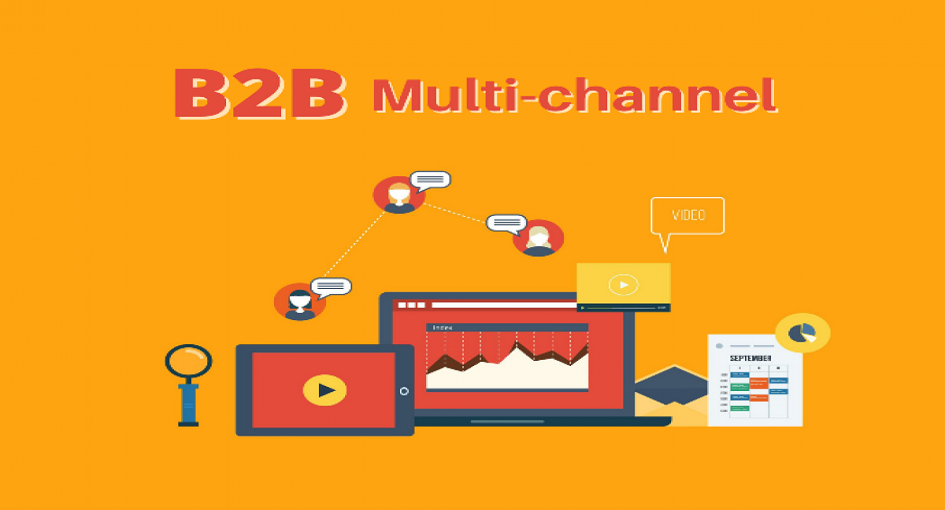
In the fast-paced and interconnected world of B2B marketing, generating leads requires a multifaceted approach. Relying on a single channel is no longer sufficient to reach potential clients effectively. To thrive in the competitive B2B landscape, businesses must employ a multi-channel lead generation strategy that leverages various platforms and methods. This comprehensive guide will explore how to generate multi-channel B2B leads to expand your client base and drive growth.
1. Define Your Target Audience:
Before embarking on a multi-channel B2B lead generation journey, it’s essential to have a clear understanding of your ideal B2B customers. Create detailed buyer personas that encompass job titles, industries, pain points, and goals. This information will serve as the foundation for your multi-channel approach.
2. Build a Compelling Website:
Your website is often the first point of contact for potential B2B leads. Ensure that it is well-designed, user-friendly, and optimized for search engines (SEO). Create informative, industry-specific content that showcases your expertise and addresses the needs of your target audience.
3. Content Marketing:
Develop a content marketing strategy that includes blog posts, whitepapers, case studies, and ebooks. Craft content that resonates with your target audience and provides valuable insights. Share this content across various channels, including your website, social media, and email.
4. Email Marketing:
Email remains a potent tool for multi-channel B2B lead generation. Segment your email list based on industry, job role, and interests. Send personalized and relevant content, such as newsletters, product updates, and educational resources. Consider using marketing automation to nurture leads and track their engagement.
5. Social Media Marketing:
Leverage social media platforms such as LinkedIn, Twitter, and Facebook to connect with B2B prospects. Share industry news, engage in discussions, and showcase your expertise. Use targeted advertising to reach specific demographics and industries.
6. Pay-Per-Click (PPC) Advertising:
Run PPC advertising campaigns on platforms like Google Ads and LinkedIn Ads. Craft compelling ad copy that speaks to the pain points and needs of your target audience. Drive traffic to dedicated landing pages designed for lead capture.
7. Webinars and Virtual Events:
Host webinars, virtual workshops, and industry-specific events. These platforms provide an opportunity to engage with potential leads in real time. Collect registrations and follow up with attendees to nurture them further.
8. Search Engine Optimization (SEO):
Optimize your website and content for relevant keywords in your industry. High-quality SEO content can drive organic traffic to your site and attract B2B leads actively seeking information or solutions.
9. Networking and Partnerships:
Participate in industry events, conferences, and trade shows. Establish partnerships with complementary businesses to expand your reach. Networking often leads to valuable B2B connections and referrals.
10. Content Syndication:
Consider syndicating your content on industry-specific websites and platforms. This exposes your content to a broader audience and can generate leads interested in your expertise.
11. Online Directories and Listings:
Ensure your business is listed on relevant online directories, such as industry-specific directories, Google My Business, and social media profiles. This enhances your online visibility and credibility.
12. Chatbots and Live Chat:
Implement chatbots or live chat on your website to engage visitors in real time. Use these tools to answer inquiries, provide information, and capture lead information.
13. Analytics and Tracking:
Use analytics tools to monitor the performance of your multi-channel lead generation efforts. Track metrics such as website traffic, email open rates, click-through rates, and conversion rates. Adjust your strategies based on data-driven insights.
14. CRM Integration:
Integrate a Customer Relationship Management (CRM) system to manage and organize your B2B leads effectively. CRM software helps track interactions, automate follow-ups, and segment leads for targeted marketing.
15. Personalization:
Tailor your communications and content to individual leads whenever possible. Personalization can significantly increase engagement and conversion rates.
16. A/B Testing:
Regularly conduct A/B tests on various elements of your lead generation campaigns, including landing pages, emails, and ad copy. Experiment with different approaches to optimize your strategies.
In conclusion, multi-channel B2B lead generation is a dynamic and versatile strategy that enables businesses to reach potential clients through various touchpoints. By diversifying your approach and adapting to the evolving digital landscape, you can maximize your chances of attracting high-quality B2B leads. Remember that consistency, personalization, and data-driven decision-making are essential components of a successful multi-channel lead generation strategy. With dedication and a well-executed plan, your business can expand its client base and thrive in the competitive B2B arena.